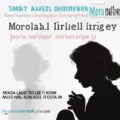Experiencing a miscarriage or infant loss is a profound and deeply personal tragedy. The road to recovery can be long and challenging, filled with a complex mix of emotions. In this compassionate guide, we connect with Ayako Miyashita, a counselor who specializes in supporting individuals and families through the process of healing after such a loss.
Understanding the Grieving Process
The grieving process after a miscarriage or infant loss is unique to each individual. Ayako Miyashita emphasizes the importance of acknowledging the loss and giving yourself permission to grieve. She notes that it’s essential to understand that grief can manifest in various ways, including anger, guilt, and profound sadness.
Navigating Emotional Responses
It’s common to experience a wide range of emotions after a loss. Miyashita encourages individuals to express their feelings and seek support from friends, family, or support groups. She also recommends professional help if emotions become overwhelming, as this can be a critical step towards healing.
Finding Support and Community
Connecting with others who have experienced similar losses can provide comfort and understanding. Ayako Miyashita highlights the value of community in the healing journey, whether it’s through in-person support groups or online forums.
Self-Care and Gentle Healing
Self-care is a vital component of recovery. Miyashita advises engaging in activities that promote relaxation and well-being, such as gentle exercise, meditation, or creative expression. It’s also important to give yourself time and space to heal without pressure or expectations.
Remembering and Honoring Your Loss
Creating rituals or memorials can be a powerful way to honor your lost child. Ayako Miyashita suggests planting a tree, donating to a charity, or creating art as meaningful ways to keep the memory of your child alive.
FAQs on Recovering From Miscarriage + Infant Loss
How long does the grieving process typically last?
Grief is a very personal experience, and there is no set timeline for healing. It’s important to allow yourself to grieve at your own pace.
Is it normal to feel guilty after a miscarriage or infant loss?
Yes, guilt is a common emotion that many parents experience. However, it’s crucial to understand that miscarriage and infant loss are often due to factors beyond one’s control.
How can I support a loved one going through this experience?
Offering a listening ear and being present are invaluable. Avoid minimizing their loss and instead acknowledge their right to grieve and heal.
Are there specific therapies recommended for recovering from such a loss?
Counseling, cognitive behavioral therapy (CBT), and support groups are often recommended. Ayako Miyashita may suggest specific therapies based on individual needs.
Can I experience postpartum depression after a miscarriage or infant loss?
Yes, postpartum depression and other mood disorders can occur after a miscarriage or infant loss. It’s essential to seek professional help if you’re experiencing symptoms.









